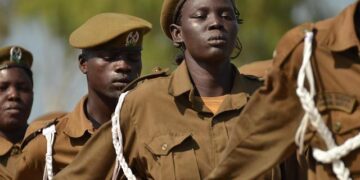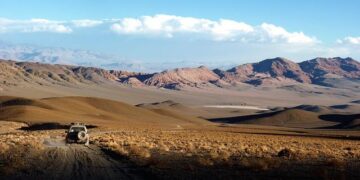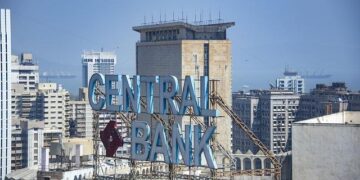In a landmark decision that could reshape the legal landscape in Nigeria, the ECOWAS Community Court of Justice has ruled to nullify the blasphemy laws in Kano State, a precedent-setting verdict that raises profound questions about freedom of expression and religious tolerance in a diverse nation. The ruling, which comes amidst a backdrop of rising tensions surrounding religious sentiments, has sparked widespread discussions among legal experts, human rights advocates, and religious leaders. As community members grapple with the implications of this decision, its potential impact on local and national governance is becoming increasingly apparent. This article delves into the details of the ruling, the reactions it has provoked, and the broader implications for human rights in Nigeria and the West African region.
ECOWAS Court Decision Challenges Blasphemy Laws in Kano and Its Implications for Religious Freedom
The recent decision by the ECOWAS Court to nullify blasphemy laws in Kano marks a pivotal moment in the ongoing debate surrounding religious freedom in Nigeria. The court’s ruling emphasizes the fundamental right to freedom of expression, which provides a counterbalance to laws perceived as oppressive under the guise of protecting religious sentiments. This legal precedent may lead to significant changes by potentially encouraging similar challenges in other jurisdictions that impose blasphemy laws. Observers believe this could foster a climate of greater tolerance for diverse religious beliefs and ideals while diminishing the societal pressures that often accompany stringent laws against blasphemy.
Implications of this landmark ruling extend beyond the borders of Kano, as it highlights inherent conflicts between religious laws and human rights. Stakeholders involved in civil society, religious groups, and legal advocates are assessing the broader ramifications, including:
- Increased awareness: A rise in public discourse regarding religious freedom and its boundaries.
- Legal precedents: Encouragement for more citizens to challenge restrictive laws.
- Interfaith dialogue: Enhanced opportunities for discussion among varying religious factions.
Despite the potential for pushback from conservative elements within society, the ruling is seen as a crucial step toward a more inclusive narrative around faith and expression in Nigeria. The conversation surrounding secular governance versus religious law will likely intensify as further legal interpretations and societal reactions unfold.
Expert Analysis on the Legal Ramifications of the Ruling in Kano’s Blasphemy Context
The recent ruling by the Economic Community of West African States (ECOWAS) court has significant implications for blasphemy laws in Kano, as it challenges the intersection of religious sentiments and legal frameworks. This decision not only calls into question the enforceability of such laws but also highlights broader issues regarding freedom of expression and the protection of individual rights within the region. As the court emphasized, laws that infringe upon fundamental human rights must be reevaluated in the context of contemporary societal values. This pivotal ruling paves the way for legal discourse on how blasphemy laws conflict with international human rights standards and may trigger a wave of legal reforms across Nigeria and beyond.
In light of this judgment, several critical factors must be considered:
- Legal Precedence: The ruling sets a precedent that could influence future legal interpretations and legislation regarding blasphemy and freedom of expression.
- Potential for Reform: It opens avenues for advocates to push for the repeal or amendment of blasphemy laws that have been seen as instrumentally oppressive.
- Impact on Religious Communities: The response from various religious groups could either lead to heightened tensions or foster dialogue aimed at mutual understanding.
Furthermore, the ruling raises important questions about the enforcement of laws that may contradict individual rights protected under regional and international treaties. Legal observers speculate that this landmark decision could instigate further challenges to similar laws in other jurisdictions, thereby encouraging a movement towards the decriminalization of expression that may be deemed blasphemous within certain faith contexts. The outcome of this ruling not only impacts the legal landscape in Nigeria but also echoes within the broader West African region, where the balance between religious freedom and legal accountability continues to be a contentious issue.
Recommendations for Policy Reforms in Response to the ECOWAS Court’s Landmark Ruling
The recent ruling by the ECOWAS Court of Justice represents a pivotal moment for the protection of human rights in West Africa. In light of this decision, policymakers across the region must urgently reassess existing blasphemy laws that infringe upon freedom of expression. Key recommendations for reform include the need to harmonize national legislation with international human rights standards, thereby ensuring that all laws are consistent with the principles of freedom, tolerance, and respect for diverse beliefs. Additionally, it is crucial to foster public discourse that encourages understanding and dialogue among different religious and cultural groups to mitigate tensions and promote social harmony.
Moreover, governments should establish monitoring and evaluation frameworks to assess the impacts of law reforms on society. These frameworks could involve:
- Engagement with civil society organizations and human rights advocates to gather insights and feedback.
- Implementation of community-based programs that aim to educate citizens on their rights and the importance of freedom of expression.
- Creating legal aid initiatives to support individuals who may face persecution under old blasphemy laws.
| Policy Reform Area | Action Steps |
|---|---|
| Legislative Review | Align laws with international human rights standards |
| Public Engagement | Promote dialogue and understanding via community forums |
| Monitoring Framework | Collect data on the impacts of reforms |
Concluding Remarks
In conclusion, the recent ruling by the ECOWAS Court stands as a significant landmark in the ongoing discourse surrounding freedom of expression and religious tolerance in Nigeria. By nullifying the blasphemy laws in Kano, the court has not only challenged the legal framework that has governed religious speech but has also ignited a broader conversation about the balance between cultural sensitivities and individual rights. As stakeholders assess the implications of this ruling, it remains crucial for policymakers, religious leaders, and civil society to collaborate in fostering an environment of mutual respect and understanding. The road ahead may be fraught with challenges, but this ruling undoubtedly paves the way for a more open dialogue on human rights and the need for legislative reform in the region. The world will be watching as Nigeria navigates this critical juncture in its legal and social landscape.














